Asian hornets: What are they, and why do they threaten UK wildlife?
- Published
- comments
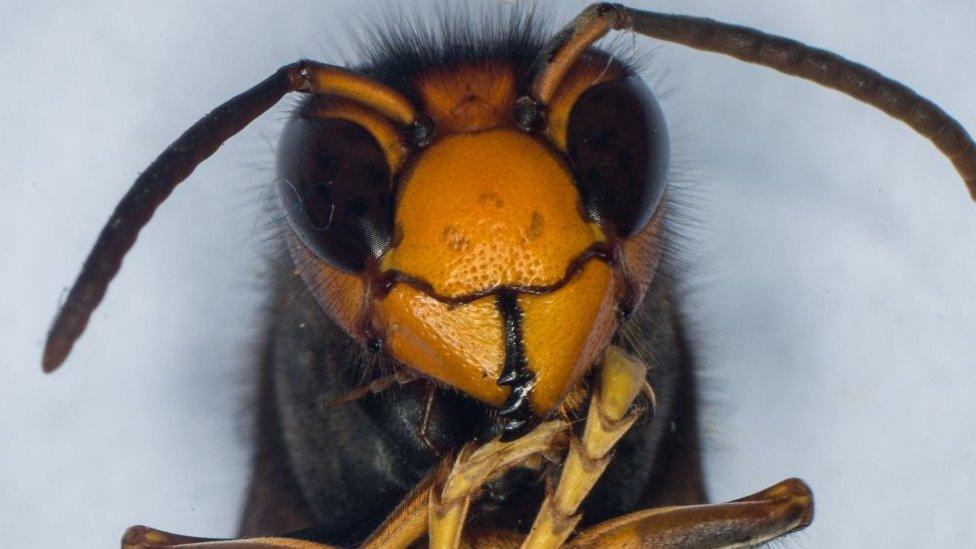
The Asian hornet looks quite different from our native hornets
People in the UK are being asked to keep an eye out for Asian hornets this summer.
The insects are an invasive species, which means they are from outside the UK and are a threat to native wildlife, such as bees and wasps.
Last summer there were record amounts of Asian hornet sightings in the UK.
The UK's chief plant health officer, Nicola Spence, has asked people to report any sightings of the hornet to a special helpline.
What does an Asian hornet look like?
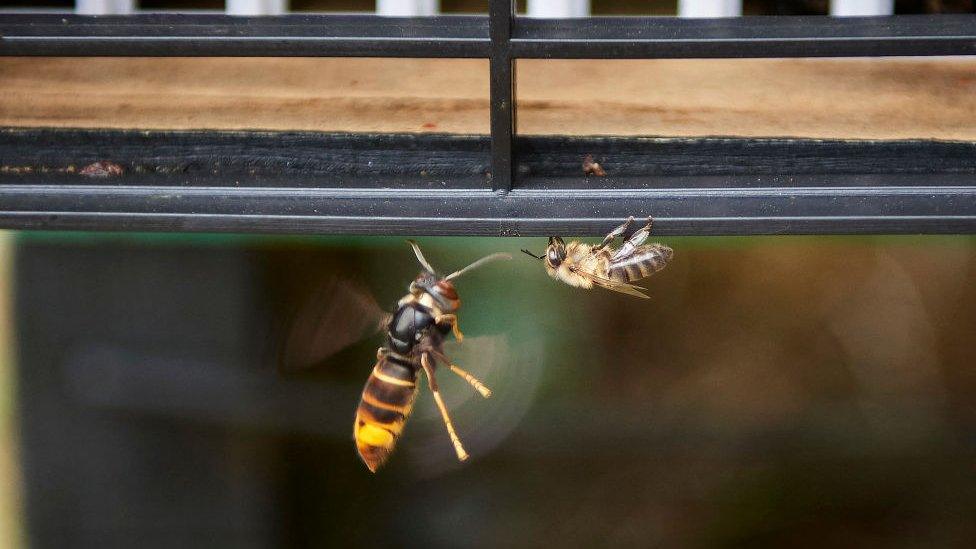
Here's an Asian hornet for scale next to a bee - the hornet is on the left
Asian hornets are slightly smaller than the native hornets we have in the UK. The Wildlife Trust says they have an orange head, a dark abdomen, and legs with yellow tips.
The government's environment department, Defra, recommends that if you think you see one, report it to their helpline.
If you're out and about and you think you've spotted an Asian hornet, ask an adult you trust to take a picture of it, and to find the helpline. Don't try to get nearer to take a photo yourself.
Defra says that Asian hornets are no less dangerous to humans than native hornets that we see in the UK every summer. However, they can be very dangerous to our local wildlife.
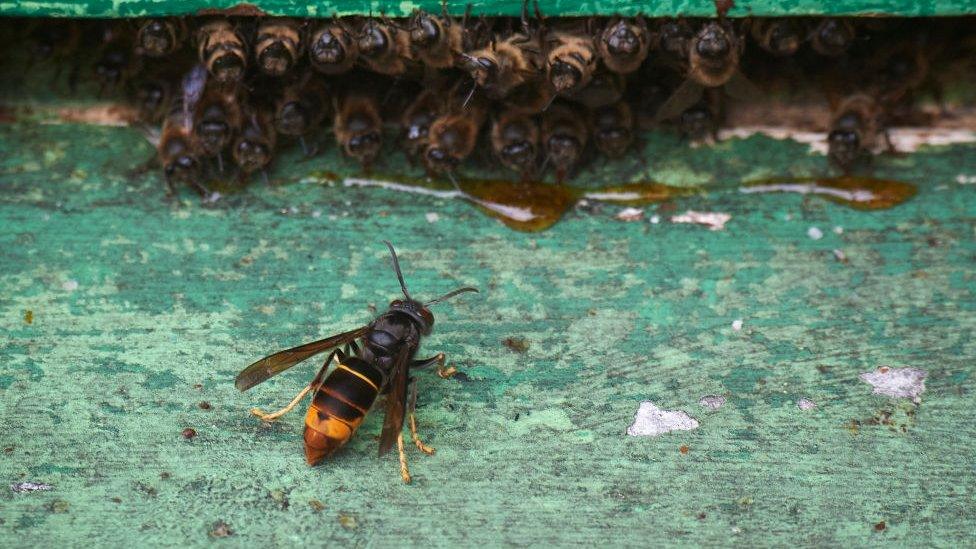
Asian hornets can pose a big threat to bee colonies
What is an invasive species?
An invasive species is something that comes from a different ecosystem, like another country, and takes over native animals habitats and food. This can be dangerous to native wildlife.
Native is the term used when something lives in the place it comes from. For example, oak trees are native to the UK.
Invasive species can have a damaging impact on biodiversity. This is because when they kill other species or take their food and habitat, they take over the population, making it harder for smaller species to develop or thrive.
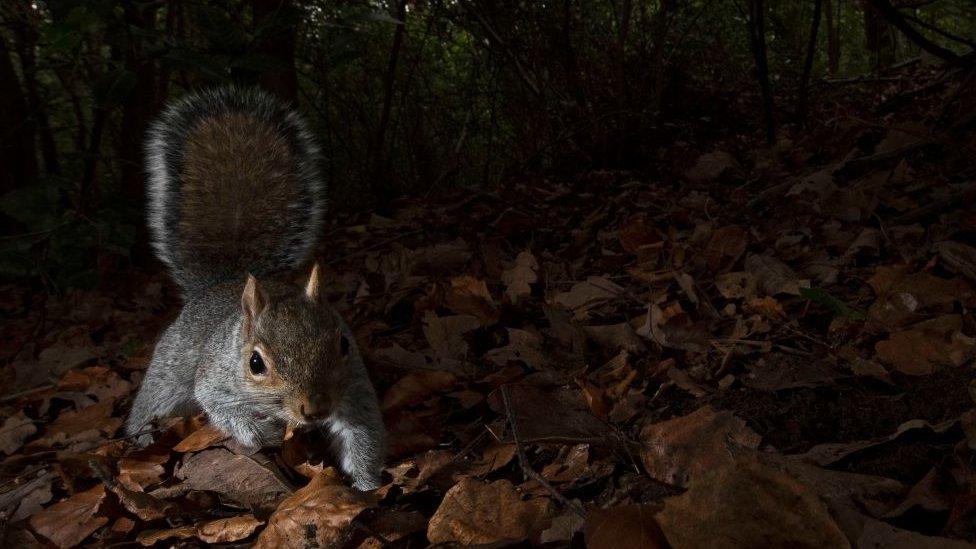
Grey squirrels are an invasive species from the USA
Imagine the natural world as a computer, made up of lots of different parts that all work to help each other.
Worms create and improve the soil for plants to grow in, but they are also food for birds, and birds provide food for larger predators. Trees that grow in the soil also make homes for birds - and provide tasty food too.
This happens on a big scale all over the world. If you take away one part of the ecosystem, there could be big consequences for lots of different creatures.
One species being wiped out by an invasive one could lead to another species losing its food, or animals losing their homes.
Like a computer, if you take one part out of an ecosystem, it may struggle do the job that it's meant to.
Other invasive species in the UK
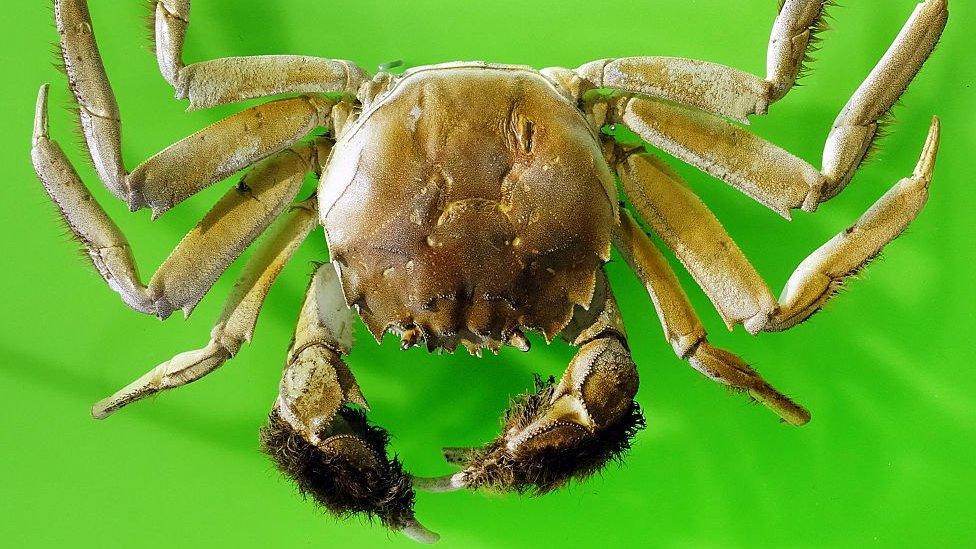
The Chinese mitten crab - named for its furry-looking claws - is an invasive species here in the UK
An organisation called the Wildlife and Countryside Link has warned that climate change - bringing warmer temperatures and increased flooding - has lead to other invasive species growing in the UK.
You might have heard of Japanese Knotweed - it's a super invasive plant that can quickly take over gardens and green spaces. It's got a tough network of roots underground which can make it very difficult to get rid of once it's there, and it can cause damage to buildings.
Another is Himalayan Balsam, which causes problems for native plants in the UK. It grows really quickly and takes over the habitats of other plants. Because it grows near riverbanks, it can also increase the risk of flooding.
There's also Giant Hogweed - which people have been told to look out for because it can cause burns on the skin. The Woodland Trust recommends that people learn what it looks like, and try to avoid brushing past it when you're out exploring nature.
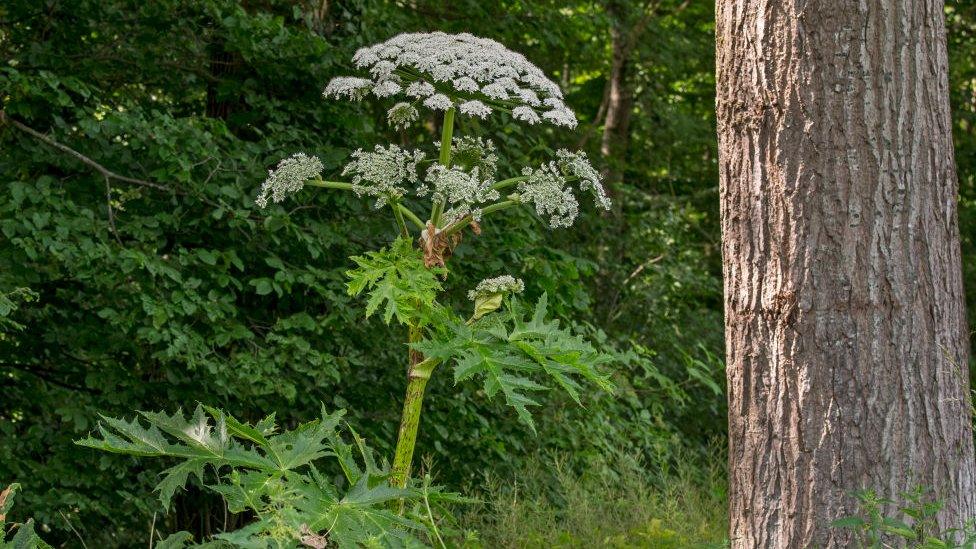
This is a giant hogweed - they can grow pretty tall - up to five metres
The Woodland Trust recommends you get medical help as soon as you can if you think you have been burned by Giant Hogweed. You can always ask an adult you trust if you're unsure.
Invasive species are already one of the biggest threats to the UK environment
Charities and environmental groups have asked the government to help protect native species from invasive ones.
The River Trust, Plantlife and Buglife are all calling for Invasive Species Week (20-26 May) to be recognised to help raise awareness of the threats against UK wildlife.
The government has a list of invasive non-native species that threaten wildlife in the UK. There's strict rules around them, and you're not allowed to do things like keep them as pets or sell them.
